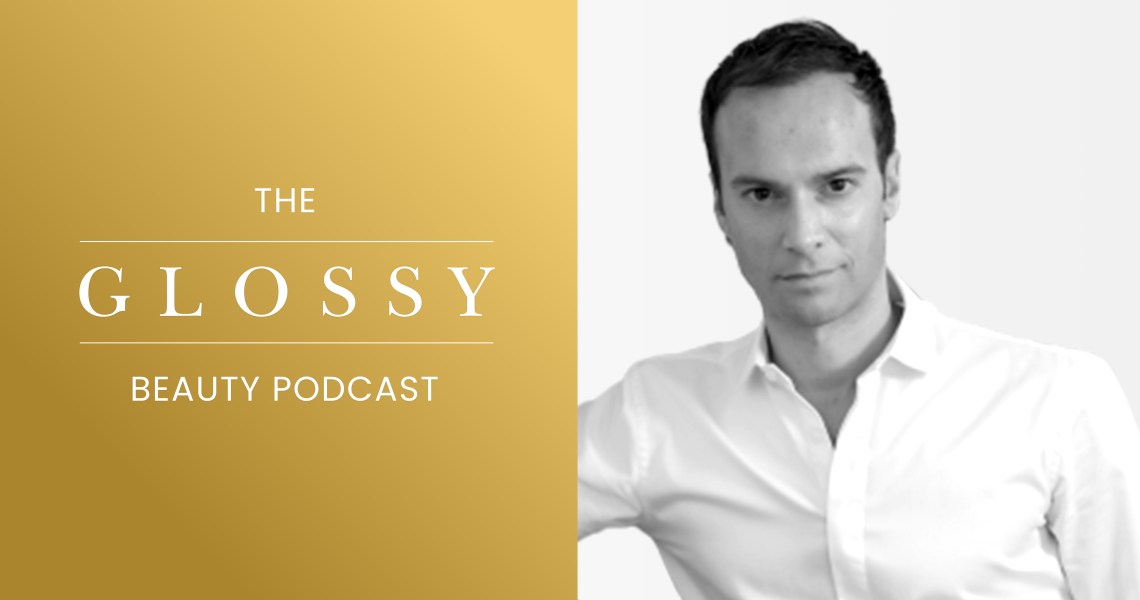Subscribe: iTunes | Stitcher | Google Play | Spotify
Before starting Hum Nutrition, Walter Faulstroh was a beauty junky with some frustrating skin problems. He had always had a passion for skin care, but no matter what he did, he couldn’t seem to get rid of his breakouts.
“I used to struggle with breakouts, and with the help of a nutritionist, I managed to get my skin under control,” said Faulstroh. “When I worked for V Water, one of the nutritionists helping us formulate the drinks helped me personally figure out my skin through nutrition. That was the ‘aha’ moment, to see how powerful it was and how much you could do with nutrition. It was well beyond what I ever expected.”
Seven years ago, Faulstroh launched a DTC beauty supplement brand called Hum Nutrition that was quickly scooped up by Sephora. The brand now offers a wide range of products, which claim to address everything from dark circles to PMS to problematic skin.
On this week’s episode of The Glossy Beauty Podcast, beauty editor Priya Rao sits down with Walter Faulstroh, the founder and CEO of Hum Nutrition. The two discuss the costs and payoffs of clinical trials, the way his brand is making a newer beauty category more digestible, and the reason he decided to sell direct to consumer. Edited highlights below.
Clinical research is expensive, but important
“Any ingredient that goes into our products has to have clinical research behind it, and ideally, that research is double-blind, placebo controlled and randomized so we know from the application that the product will actually deliver the effect it is supposed to. Now, we’re taking it to the next level with Skin Heroes. … We gave consumers 60 days to try the product, and had a dermatologist supervise the study and measure progress at day zero, day 30 and day 60. At the end of the study, we found that the product actually really helped with breakouts: 89% of consumers saw improvement in their skin, and the dermatologist who rated the skin also saw significant improvement. It’s the first time we went this far into clinical research, but we’re very excited about the outcome. It’s not cheap, for sure, and for us, it’s a big investment. But I think it’s going to pay off.”
Ad position: web_incontent_pos1
Simplifying a complex message without dumbing it down
“One area of expertise for Hum is dissecting a truly complicated message and delivering it in a user-friendly format, but never jeopardizing the quality of the message. We don’t dumb down the message; we just make it easier to understand. We have a whole team of registered dietitians that help us to really educate the consumer — there’s a lot of information for consumers — and we take a three-level approach. Level one: What’s the high-level message? Level two: Describe it in a bit more detail. And level three: We do a deep dive for those consumers who are really thirsty for content.”
Traditional vitamin retail doesn’t care about education
“The reason we didn’t go into GNC or Vitamin Shoppe was that, when we looked at the industry and at those retailers, we saw that there’s absolutely no education on site. It was all about selling ingredients at the best possible price points — maybe you buy two bottles, you get another one for free. But the consumer wasn’t at the heart of the experience. That’s why we wanted to dissect the whole process from the beginning, from pairing the consumer with the right product, to educating them on what is right or wrong for them, and sometimes even telling the consumer they don’t need a product. We want people to understand that a healthy diet is the starting point of everything, and then you use supplements more like complements. That’s very different than the approach of GNC.'”
Sign up for our new Glossy Beauty and Wellness Briefing, a weekly newsletter coming in April that will provide deep-dive analyses, emerging trends and insider insights in the growing beauty and wellness industries.




